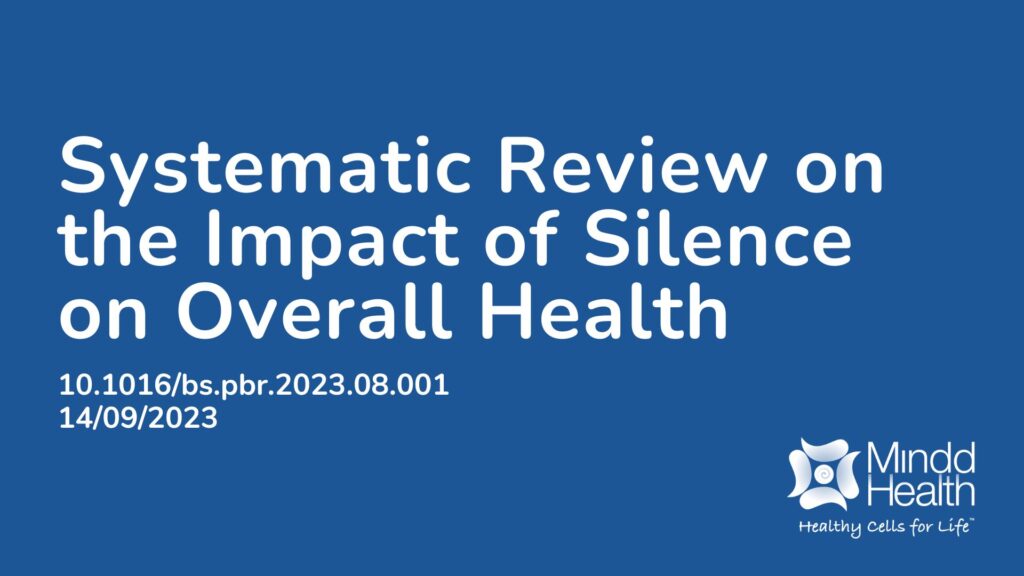Summary:
This paper is a systematic review that examines the current evidence base on the effects of silence. Silence, defined as the absence of sound, has long been linked to calmness and wellbeing. In modern society, where noise and constant stimulation are widespread, research has become interested in understanding how silence affects the body and mind. Studies suggest that silence can influence heart rate, blood pressure, hormone levels, and brain activity, indicating an important role in regulating stress and promoting relaxation. It has been hypothesized that in safe conditions, the body slows heart rate, reduces stress hormones, and supports social connection. In dangerous situations, the system triggers fight-or-flight responses, while in extreme cases it can shut the body down in a freeze response. Silence may provide signals of safety, helping the body achieve a calm and balanced state. There are also different types of silence. Outer silence refers to the absence of environmental noise. Inner silence is the quieting of mental chatter, often achieved through practices such as meditation. Social silence arises when people deliberately refrain from speaking. Emotional silence involves withholding the expression of feelings, while ritual silence appears in ceremonies and spiritual traditions. Reflective silence supports deep thought and self-awareness. These forms often overlap, and their effects vary depending on individual and cultural context. Overall, evidence suggests that silence has meaningful physiological, psychological, and cultural effects. By reducing stress, encouraging reflection, and supporting social and spiritual practices, silence may play a more important role in health and wellbeing than is commonly recognized.
Abstract:
This systematic review explores the influence of silence on the autonomic nervous system. The Polyvagal Theory has been used as a reference model to describe the autonomic nervous system by explaining its role in emotional regulation, social engagement, and adaptive physiological responses. PubMed, Scopus, PsycInfo, EMBASE, and Google Scholar were systematically searched up until July 2023 for relevant studies. The literature search yielded 511 results, and 37 studies were eventually included in this review. Silence affects the autonomic nervous system differently based on whether it is inner or outer silence. Inner silence enhances activity of the ventral vagus, favoring social engagement, and reducing sympathetic nervous system activity and physiological stress. Outer silence, conversely, can induce a heightened state of alertness, potentially triggering vagal brake removal and sympathetic nervous system activation, though with training, it can foster inner silence, preventing such activation. The autonomic nervous system response to silence can also be influenced by other factors such as context, familiarity with silence, presence and quality of outer noise, and empathy.
Article Publication Date: 14/09/2023
DOI: PMID: 10.1016/bs.pbr.2023.08.001



